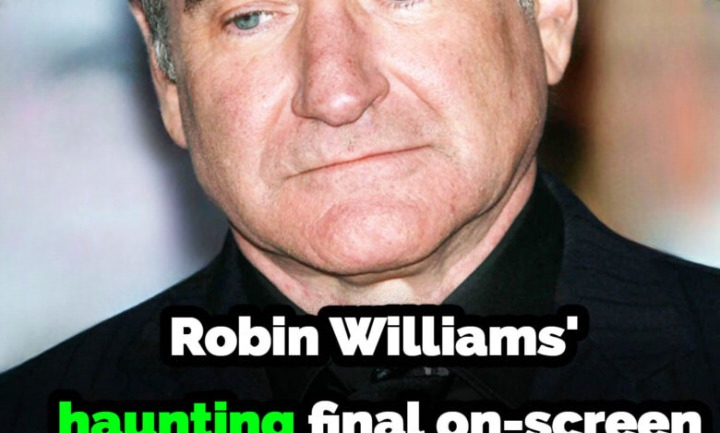Robin Williams’ death in 2014 felt like the world had been struck without warning. For more than forty years, he’d been the unstoppable energy behind films that shaped generations — Good Will Hunting, Dead Poets Society, Mrs. Doubtfire, Aladdin, and countless others. His creativity seemed endless, his humor effortless. On camera, he was a force of nature. Off it, he was gentle, introspective, and heartbreakingly human. So when news broke that August that he had taken his own life, it didn’t seem real. How could someone who radiated so much light fall into such deep darkness?
Immediately, theories circulated — depression, addiction, stress. The usual quick explanations people reach for when tragedy doesn’t make sense. But the truth was far more complex and far more devastating. After the autopsy, doctors discovered that Robin had been suffering from severe Lewy body dementia — a vicious neurological disease he never even knew he had. His wife, Susan Schneider Williams, later said that doctors told her his brain was overwhelmed with Lewy bodies. Every region had been hit.
She admitted she had never even heard the term before, but once the doctors explained it, so many things fell into place — his confusion, anxiety, the sudden cognitive changes, the fear he couldn’t fully describe. “The fact that something had invaded every part of my husband’s brain? That made perfect sense,” she said years later.
Lewy body dementia is cruel. The National Institute on Aging describes it as a condition that affects movement, thinking, personality, and behavior — and it can progress rapidly. Dr. Bruce Miller, a leading neurologist at UCSF, said Robin’s case was one of the worst he had ever seen. He even said he was astonished that Robin had managed to keep functioning at all. The man who had carried the world with his humor was silently battling a neurological storm.
In the HBO documentary Come Inside My Mind, there’s an old interview that now feels painfully haunting. When Robin was asked what he feared most, he answered softly: “I guess I fear my consciousness becoming, not just dull, but a rock. I couldn’t spark.” That single line hits like a blow now. His “spark” — the quick mind, the rapid-fire brilliance — was exactly what the disease was destroying. And he felt it happening to him.
Susan said he would often tell her, “I just want to reboot my brain.” He knew something was terribly wrong. He just didn’t know what, or why. She promised him they would find answers, not realizing that those answers would come too late.
Fans have long believed Robin’s final movie lines came from Night at the Museum: Secret of the Tomb, where he, as Teddy Roosevelt, gently says, “Smile, my boy. It’s sunrise.” It felt fitting — almost like a goodbye. But that wasn’t actually his final performance.
His last live-action role was in Boulevard, released after his death. And the final line he speaks there is not comforting — it’s hauntingly reflective. As later reported by Parade, many viewers felt the line unintentionally echoed his final years.
He says:
“I drove down a street one night. A street I didn’t know. It’s the way your life goes sometimes. I’ll drive down this one and another. And now, another.”
Reading those words now, it feels like someone describing a journey through unfamiliar, frightening territory — the same kind of mental fog Lewy body dementia forces upon its victims.
After his death, Susan Schneider Williams became a fierce advocate for Lewy body dementia awareness. She talked openly about how often it’s missed or misdiagnosed, how families feel helpless as their loved one’s mind shifts in ways they can’t explain. She wanted people to understand that Robin didn’t lose his love for life — the disease took the spark that made life livable.
Lewy body dementia isn’t just memory loss. It distorts perception, disrupts reasoning, and causes terrifying hallucinations. It breaks down the ability to think clearly or trust your own senses. It is one of the most merciless brain disorders known. And Robin Williams had one of the most advanced cases doctors had ever encountered.
But Robin Williams is not defined by the illness that took him. He isn’t defined by the tragedy. He isn’t defined by the last chapter. He is remembered for the joy he created. For his astonishing talent. For his warmth. For the way he made millions feel seen, understood, and less alone. For the way he lifted entire rooms with a single improvised line. For his kindness.
His legacy endures because it was born out of authenticity — a rarity in entertainment. He didn’t perform to show off. He performed to connect. And that connection lives on.
People still speak of him like they lost a friend. Clips of his interviews still go viral. His scenes still make people laugh, cry, or feel understood on days when they desperately need it. His legacy isn’t tragedy — it’s impact.
And although his final onscreen words weren’t written as a message, they read like one today. Life takes us down roads we don’t expect. Some are bright. Some are terrifying. Some are chosen. Some aren’t. But we keep moving — one street at a time.
If you or someone you love is struggling, help is available. Call or text 988. Someone will pick up. Someone will listen.
Robin Williams may be traveling a different path now, but the world carries his light with it — his artistry, his heart, his humanity.
He made people feel. That is a kind of immortality very few ever achieve.
